MercoPress. South Atlantic News Agency
Tag: Argentina inflation
-
Wednesday, July 16th 2014 - 08:00 UTC
June inflation in Argentina reached 1.3% and 15% in the first half of 2014
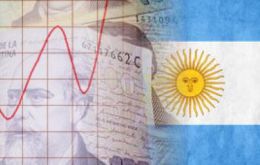
June inflation in Argentina reached 1.3%, accumulating 15% in the first six months of the year, according to a release from the country’s stats office Indec. The release also revealed the wholesale prices had increased 1.5% in June, while locally-made products saw rises of 1.5%.
-
Wednesday, April 16th 2014 - 04:15 UTC
Fiat Argentina CEO calls for one digit inflation to help stabilize production
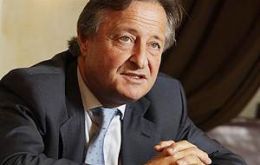
Fiat Argentina's CEO Cristiano Rattazzi compared inflation in Argentina with that of Venezuela and Sudan and called on the government of President Cristina Fernandez to bring it down to one digit and help stabilize production costs and exports.
-
Friday, November 22nd 2013 - 03:46 UTC
“Argentina is on fire because of inflation” says leading businessman

Fiat Argentina CEO Cristiano Rattazzi said that “Argentina is on fire because of inflation” and called on the newly appointed cabinet chief Jorge Capitanich and Economy minister Axel Kicillof “to work hard to bring inflation down”.
-
Friday, October 11th 2013 - 13:23 UTC
Argentina September ‘Congress index’ inflation 2.11% and 25.44% in twelve months
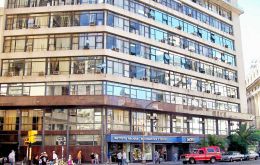
Argentina’s “Congress” Consumer Price Index which is an average of private consultants and is released by opposition lawmakers, showed that inflation in September increased 2.11%, the highest September since 1991, accumulating 25.44% in the last twelve months.
-
Wednesday, October 9th 2013 - 05:28 UTC
IMF forecasts higher growth for Argentina this year, but reliability of official stats remains controversial

Argentina’s growth has recovered because of an abundant crop but economic activity continues to be contained because of the exchange rate and other administrative controls, according to the IMF latest World Economic Outlook (WHE), Latam and Caribbean chapter released on Tuesday. The IMF statement refers to Argentina’s export duties and the so called ‘dollar clamp’ which bans even saving in US dollars.
-
Thursday, August 8th 2013 - 03:05 UTC
Argentina central bank turned into state-financing tool: recession and higher inflation forecasted
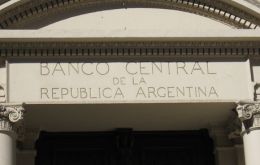
Argentina is forecasted to fall into recession next year on the back of super-loose money policy with inflation reaching 24% this year and 30% in 2014 as the government continues to appeal to Central bank resources to meet budget commitments, according to London based Capital Economics.
-
Thursday, May 23rd 2013 - 07:20 UTC
Beware inflation: CFK announces “political groups” will keep track of prices in shops

Argentine President Cristina Fernández (CFK) indirectly acknowledged that inflation has become a major challenge for her government despite the fact that the official reading in twelve months is 10.6%, even when private estimates indicate 24% and expectations have soared to 34%.
-
Saturday, April 20th 2013 - 08:32 UTC
Argentines expecting inflation above 30% for the next twelve months
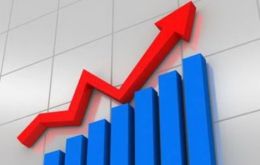
Argentines are expecting an inflation of 34.2% in the coming twelve months according to the average from a monthly report released by a prestigious private university research centre based on surveys,
-
Friday, March 22nd 2013 - 07:19 UTC
Argentina threatens with ‘flexible imports’ to ensure supply of consumer goods

Argentine president Cristina Fernandez announced the government is prepared to make imports more flexible in those areas where a few companies have a quasi-monopoly control, but also warned about windfall profiteering.
-
Wednesday, March 20th 2013 - 23:40 UTC
Argentines expect inflation to reach 33.5% in the next twelve months
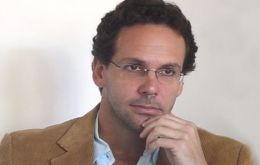
Argentines expect inflation to reach 33.5% in the next twelve months, according to the latest report from the Finance Research Centre, CIF, which belongs to the Torcuato Di Tella University. This is half a percentage point higher than the previous release.
